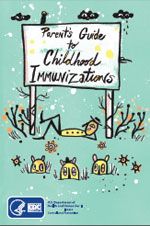
As a parent, ensuring the health and well-being of your child is of paramount importance. One crucial aspect of safeguarding your child’s health is understanding the importance of childhood vaccinations. In this comprehensive guide, we will explore the significance of childhood vaccinations, demystify common misconceptions, and provide you with the information you need to make informed decisions for the well-being of your child.
Why Vaccinations Matter?
Vaccinations play a critical role in protecting children against numerous potentially life-threatening diseases. By stimulating the child’s immune system, vaccines equip the body to develop immunity to specific illnesses, preventing or minimizing the severity of future infections. Vaccinations not only protect your child but also contribute to the concept of herd immunity, providing protection to those who cannot receive vaccinations due to medical conditions or age.
The Vaccination Schedule
Understanding the childhood vaccination schedule is crucial for parents. Vaccination schedules outline the recommended timeline for administering vaccines at various stages of a child’s life. The schedule is carefully designed based on extensive research and analysis of disease patterns to ensure maximum effectiveness and protection. By adhering to the vaccination schedule, parents can ensure their child receives the necessary protection at the appropriate times.
Common Vaccines for Children
Childhood vaccinations guard against a range of diseases, including but not limited to:
Measles, Mumps, and Rubella (MMR): This vaccine protects against three highly contagious diseases that can lead to severe complications.
Pertussis (Whooping Cough): Pertussis is a highly contagious respiratory infection, particularly dangerous for infants. Vaccination helps protect against this serious illness.
Polio: Polio is a viral infection that can cause paralysis. Vaccination helps eliminate the risk of polio and its transmission.
Hepatitis B: Hepatitis B is a viral infection affecting the liver. Vaccination at birth helps safeguard against this potentially chronic disease.
Chickenpox (Varicella): Chickenpox is a highly contagious disease. Vaccination can protect children from this uncomfortable viral infection.
Addressing Safety Concerns
While vaccine safety concerns occasionally arise, it is important to understand that vaccines undergo rigorous testing and scrutiny before they are approved for use. Decades of research and monitoring have consistently shown that vaccines are safe and effective in preventing diseases and their associated complications. Serious adverse effects are extremely rare, and the benefits of vaccination far outweigh the potential risks.
Debunking Vaccine Myths
There is an abundance of misinformation surrounding childhood vaccinations. By separating fact from fiction, parents can make informed decisions. Common myths include:
Myth: Vaccines cause autism. Numerous scientific studies have disproven this claim, and major global health organizations confirm that there is no link between vaccines and autism.
Myth: Vaccines weaken the immune system. On the contrary, vaccines strengthen and educate the immune system, preparing it to fight future infections effectively.
Myth: Natural immunity is better than vaccine-induced immunity. While natural immunity may occur after recovering from an illness, it often comes at a higher risk of complications and even death. Vaccination provides a safer way to develop immunity without the associated risks.
Conclusion
Understanding childhood vaccinations is key for parents to make informed decisions regarding their child’s health. By recognizing the importance of vaccines, following the recommended vaccination schedule, and dispelling misinformation, parents can take significant steps towards protecting their child from serious diseases. Consultation with healthcare professionals and pediatricians can provide further guidance and reassurance. Remember, childhood vaccinations not only safeguard your child’s health but also contribute to the collective well-being of the community.

